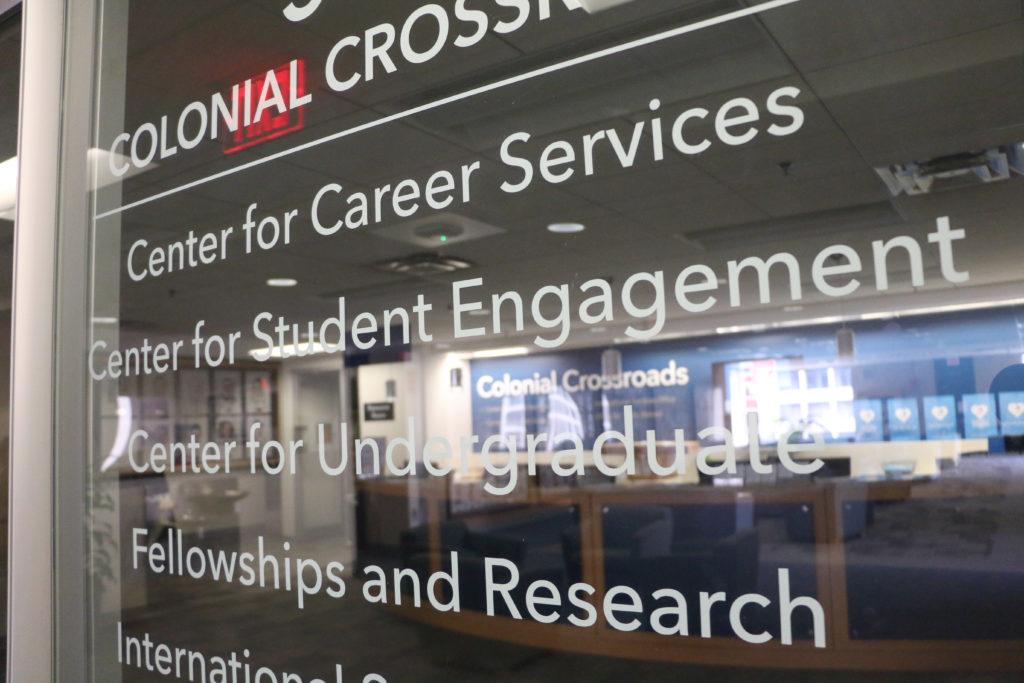Officials joined a group of schools dedicated to improving the experiences of first-generation students earlier this month.
GW will participate in First Forward, a program that connects universities to discuss how to further the success of first-generation students, according to a May 7 tweet from the Center for Student Engagement. Officials said joining First Forward will allow GW staff to exchange information and resources with other institutions to improve the first-generation student experience.
“It is our hope that participating in this program will enable us to build on the successes from the past couple of years and create new initiatives to serve and better the experience of our students in the future,” Colette Coleman, the interim associate dean of students, said in an email.
The National Association of Student Personnel Administrators and the Suder Foundation launched the cohort on May 1. The initiative allows student affairs staff nationwide to attend events like annual report discussions – which evaluate each school’s first-generation student support – and professional development conferences to exchange ideas about first-generation student life.
Coleman said three staff members from the CSE – Brittany Abraham, the program coordinator for special populations; Bridgette Behling, the director of community support and leadership; and Natalie Hershberger, the assistant director for experiential learning and leadership – will represent GW in the cohort. She said the University currently offers several programs for first-generation students, like monthly first-generation dinners and networking events.
“We collaborate with a number of GW offices and First-Gen United to provide one-on-one support, workshops and community building programs to connect students to resources and others who can relate to their experiences,” Coleman said in an email.
Between 2014 and 2016, about 12 percent of students enrolled at GW identified as first-generation college students, according to a University release. The University dedicated a floor in Thurston Hall for first-generation freshmen this academic year, and a District House affinity suite will open for first-generation students next academic year.
The student organization First Gen United GW sponsored the inaugural first-generation week in November, and the University launched a peer mentorship program for first-generation students in 2013.
Deana Waintraub Stafford, the assistant director for the Center for First-Generation Student Success at NASPA, said participants of the cohort must be a two- or four-year accredited U.S. college or university, hold a NASPA institutional membership and express interest and commitment to the cohort.
First Forward recognized 80 institutions in the cohort, according to the First Forward website. Five peer schools – Northeastern and Georgetown universities and the universities of Rochester, Miami and Tufts – joined the group, according to the First Forward website.
Stafford said the cohort allows colleges and universities to upgrade existing first-generation student programs and improve social and academic success among first-generation students.
“Institutions will critically review existing offerings and navigate opportunities to enhance these efforts,” Stafford said in an email. “Depending on the focal areas, each First Forward institution will uniquely support their first-generation student population.”
Staff members from institutions in the cohort said they look forward to exchanging ideas, like mentorship programs and training for faculty and staff, with other schools to learn how to educate faculty on improving the first-generation student experience.
Lisa Miles, the associate director of Common Ground, a diversity and inclusion initiative at the University of Richmond, said she joined the cohort to interact with staff members from other institutions about financial aid packages and other resources for first-generation students.
Miles said joining the cohort will help her to generate ideas for solutions to common problems first-generation students face, like coming from a low-income family or feeling isolated on campus, which is the current focus of her job.
“For me, it’s a way to be a part of a first-generation community that I don’t really have on my campus and bring new ideas back that I would never have come up with, with the goal of trying to give my students much better services,” she said.
Angie Lamb, the assistant director of academic support and retention at the University of Iowa, said joining First Forward allows her university to engage staff in discussions about how to make first-generation students feel accepted through conferences and training sessions with colleagues at other schools.
“We can bring all kinds of awareness and celebrate the identity and all of those things, but if the instructors in the classrooms and the staff that interact with them are really not sure what first generation means and how to better support them, then all of our work is not as effective or impactful,” she said.
Paige Morse contributed reporting.





